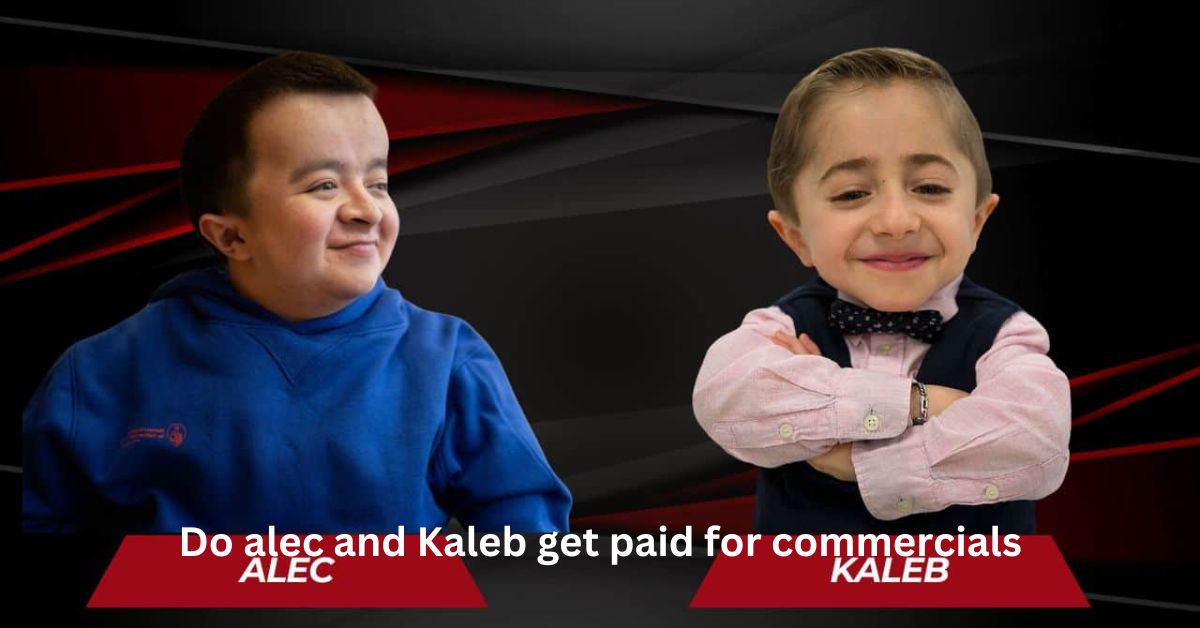Yes, Alec and Kaleb are likely compensated for their appearances in Shriners Hospitals for Children commercials, as most child actors are paid for their roles, even in charity-focused ads.
In this article, we’ll dive deep into the industry norms for child actor compensation, discuss the potential payment structures involved in charitable advertising, and analyse Alec and Kaleb’s unique role in promoting Shriners Hospitals’ mission.
Who Are Alec and Kaleb? – Know The Characters!
Alec and Kaleb have become recognisable figures through their frequent appearances in commercials for Shriners Hospitals for Children. Alec was introduced first and soon won viewers over with his optimistic outlook and commitment to helping other children facing health challenges. Kaleb joined later, adding his charm and enthusiasm to the cause. Both boys have unique medical histories and receive care at Shriners Hospitals, which specialise in providing critical care and rehabilitation for children.
Understanding Alec and Kaleb’s Contributions to Shriners Hospitals!
Alec and Kaleb serve as unofficial ambassadors for Shriners Hospitals, sharing their journeys and creating relatable images that appeal to viewers. Their appearances help the hospital convey potent messages about resilience, hope, and the importance of supporting children needing medical care. Their presence in these commercials is crucial in building awareness and encouraging donations, directly supporting the hospital’s mission to provide high-quality, specialised care to children, regardless of a family’s ability to pay.
The Role of Alec and Kaleb in Shriners Hospital Commercials – What They Do!
Shriners Hospitals for Children’s advertisements often rely on emotional narratives to connect with audiences and inspire donations. Alec and Kaleb, with their endearing personalities and openness about their medical experiences, play a vital role in these ads by:
- Humanising the cause: Their real-life stories make viewers feel a personal connection to the hospital’s work.
- Engaging viewers: Alec and Kaleb’s optimism and humour make them relatable and memorable, helping to strengthen the campaign’s impact.
- Driving donations: These ads frequently conclude with a call to action, where Alec and Kaleb directly ask viewers to support Shriners Hospitals through donations.
Industry Norms – Child Actor Compensation in Advertising!
In the entertainment industry, it is common practice for child actors to be compensated for their time, whether in films, television, or advertisements. Compensation serves multiple purposes, including:
- Acknowledging the actor’s contribution: Performing on camera requires preparation, travel, and time.
- Meeting legal standards: In many regions, child actors are protected by labour laws stipulating fair payment and certain safeguards.
- Ensuring fairness: Commercials are a form of advertising, and actors, regardless of age, are typically paid to participate in promotional content.
Considering these norms, it is likely that Alec and Kaleb will receive some form of compensation for their appearances. However, the specific structure might vary due to the charitable focus of the ads.
The Charitable Component – How It Affects Compensation!
While Shriners Hospitals is a charitable organisation whose ads aim to raise funds for pediatric care, this doesn’t necessarily negate the possibility of compensating Alec and Kaleb. Organisations often budget for professional production costs to ensure that ads effectively reach and resonate with audiences. For actors involved in these ads, even if the cause is charitable, compensation can still be provided to recognise their role in supporting the campaign.
Do Alec and Kaleb Get Paid? – Exploring the Possibilities!
While no public disclosure specifies Alec and Kaleb’s compensation details, it’s reasonable to assume they may receive payment for several reasons:
- Adherence to industry standards: As child actors in advertisements, Alec and Kaleb likely qualify for compensation under the same standards applied to other commercial actors.
- Time and effort: Alec and Kaleb dedicate time to these commercials, which likely involve preparation and multiple takes to achieve the desired emotional impact.
- Long-running campaigns: Since Alec and Kaleb’s appearances have become regular features in Shriners’ marketing; compensation might acknowledge the ongoing nature of their contributions.
Given these factors, it is plausible that Alec and Kaleb receive compensation, though this could be managed in a way that aligns with Shriners’ mission.
FAQs:
What roles do Alec and Kaleb play in Shriners Hospitals’ advertisements?
They share their personal stories to raise awareness and encourage donations, which is central to inspiring viewers to support Shriners Hospitals for Children.
Why might Alec and Kaleb be compensated for their work with Shriners?
Their work aligns with industry standards for child actors, and their efforts contribute significantly to Shriners’ fundraising goals. Compensation recognises the time, effort, and positive impact they bring.
Are child actors always paid for charity commercials?
Not always, but many organisations, even in charitable contexts, provide compensation for commercials to recognise the work and legal requirements associated with using child actors in advertisements.
How does Shriners Hospital benefit from Alec and Kaleb’s appearances?
Their stories help humanise the hospital’s mission, increasing viewer engagement and donations directly funding essential pediatric care for needy children.
Conclusion:
Alec and Kaleb’s contributions to Shriners Hospitals for Children go beyond standard advertising—they are true advocates who embody the hospital’s mission of hope and healing. While it remains unconfirmed, they likely receive compensation, as industry standards and their valuable roles in fundraising would support such an arrangement.
Through their on-screen appearances, Alec and Kaleb support the hospital’s financial goals and inspire viewers nationwide, making them key figures in Shriners’ outreach efforts.






